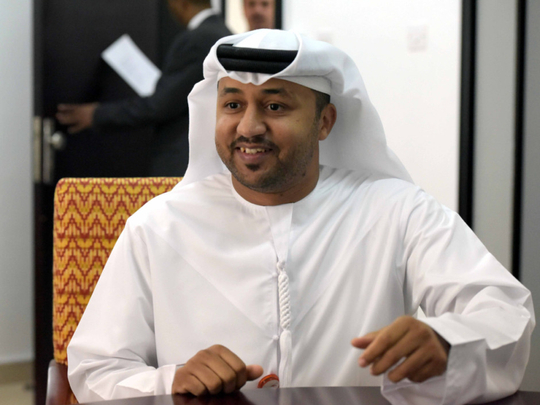
Abu Dhabi
It is not easy to cope with the realisation that a close family member may be addicted to narcotics.
Experts warn that at first, it is important to spot the tell-tale signs all addicts have in common. Once they are identified, the patient will have to go through a long and vigorous rehabilitation process, which can be supplemented with the love and understanding of family members.
Dr Mohammad Al Junaibi, Director of Healing and Rehabilitation Section of Social Services at the National Rehabilitation Centre, explained the various symptoms of drug addiction and others aspects that are taken into consideration to rehabilitate a drug addict.
Question: What are the symptoms of an addict?
There are quite a few signs — the most obvious would be if a person abruptly changes his behaviour. Another would be to display untoward nervous reactions to situations that are otherwise normal. Additionally, the addict often initiates fights and quarrels with the people around them for reasons that are at best, trivial. All of the previous characteristics would lead to the addict becoming increasingly isolated. Other signs include suddenly spending a big amount of money, and if they change their friends, and associate with unusual people.
Can you give us an example of how a typical case is handled?
We first receive a call from a family member or from the addict himself. The first conversation is to give them some idea about the service we provide. Once the person agrees to the rehabilitation process, we make an appointment for a general medical check-up and a proper evaluation of the case.
After this, we begin the five weeks of rehabilitation. During this period, we recommend that one family member be present with the addicted person to support him. Our doctor will also decide whether the patient should stay at our clinic, or if they should be referred to our outpatient clinic that will prescribe them with the medication. If the case is severe, we will keep them at the main clinic.
During the process, there are stages the patient goes through; at the beginning, his body will reject the medication because the impact of the narcotics is still very strong in his body. Over time, as the medication slowly detoxifies the person, he becomes more stable for recovery.
What is the type of treatment given after the initial five weeks of rehab?
We let the person go to group therapy sessions inside or out the NRC. At these sessions, they are given lectures on a range of issues like how to properly choose their friends, how to control themselves from not using narcotics, and how to deal with society’s perception of them. We also teach them some skills during this four-week period to help them after they leave the centre.
Can you elaborate about the skills you teach them?
We teach them English language skills, computer skills. We also have a programme for them on national identity, how to take care of their country, and some lectures on Islam. We allow them to memorise the Quran if they feel they are ready to do so.
Once the four weeks are complete and they feel they are finally ready to go out, we help them find a job.
We also advise the concerned families that once the person is out, they should treat the individual as a normal person, and not remind them about their previous life.
Have there been cases of a relapse?
It has happened a few times unfortunately. It is usually down to families that remind them of their past, and due to people not knowing how to deal with a healed addict.
— A.R.








